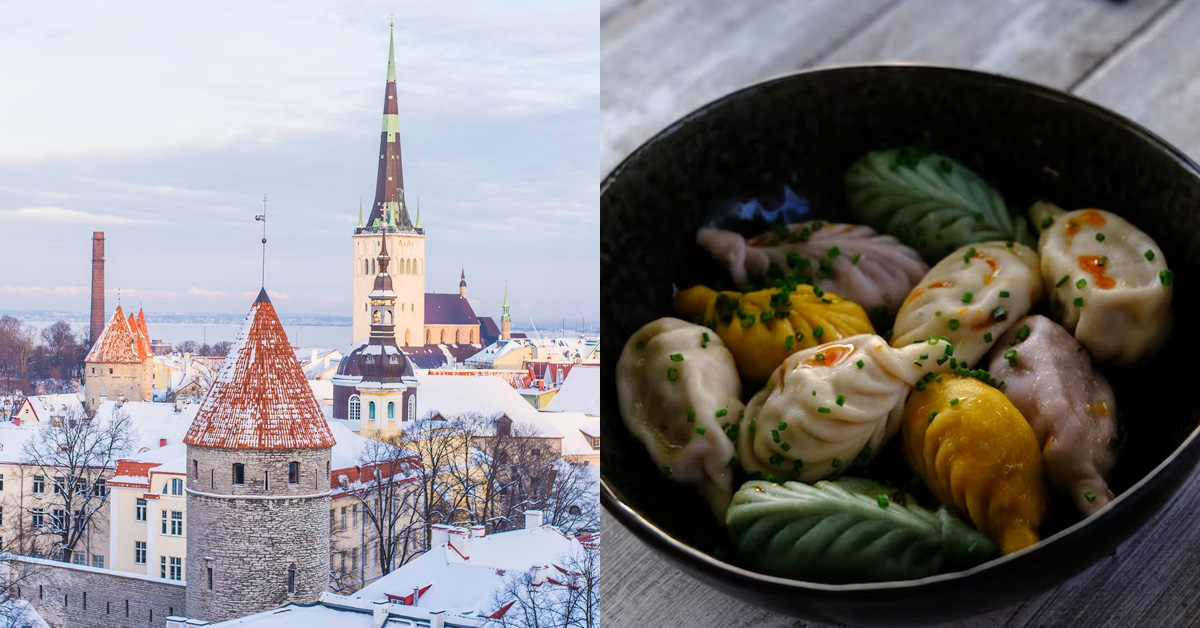Estonian cuisine is a reflection of the country’s history, geography, and culture. Located in Northern Europe, Estonia has been influenced by its neighboring countries such as Russia, Finland, and Sweden. The cuisine is characterized by its simplicity, use of local ingredients, and traditional cooking methods.
Estonian food is known for its hearty and comforting dishes, which are perfect for the cold and dark winters. Some of the most popular dishes include black bread, smoked fish, sauerkraut, and potato dishes.
Estonian cuisine halal or not?
Is Estonian food halal?
Estonian cuisine includes a variety of dishes, some of which may contain non-halal ingredients such as pork and alcohol. However, there are also many dishes that are halal-friendly, such as fish dishes, soups, stews, and vegetable-based dishes.
It is important to check the ingredients and preparation methods of each dish before consuming it to ensure that it is halal.
What kind of food do Estonian eat?
Estonian cuisine is influenced by its neighboring countries such as Russia, Latvia, and Finland. Some traditional Estonian dishes include:
- Black bread – a dense, rye bread that is a staple in Estonian cuisine.
- Kama – a mixture of roasted barley, rye, wheat, and peas that is often eaten with yogurt or kefir.
- Pea soup – a hearty soup made with dried peas, potatoes, carrots, and smoked meat.
- Blood sausage – a sausage made with pork blood, barley, and spices.
- Smoked fish – such as salmon, herring, and eel.
- Sauerkraut – fermented cabbage that is often served as a side dish.
- Potato dishes – such as boiled potatoes, potato salad, and potato pancakes.
- Cabbage rolls – stuffed with ground meat and rice, and served with a tomato sauce.
- Cranberry and lingonberry jam – often served with meat dishes.
- Vana Tallinn – a sweet liqueur made with rum, vanilla, and citrus.
How can you tell if the food is halal in Estonia?
In Estonia, halal food is not widely available, but there are some restaurants and grocery stores that offer halal options. To determine if a food item is halal, you can look for a halal certification label or ask the restaurant or store if they offer halal options.
You can also check the ingredients list to ensure that there are no non-halal ingredients such as pork or alcohol. You can also ask for clarification on the source of the meat, as halal meat must be slaughtered in a specific way.
Is it hard to find halal food in Estonia?
It may be challenging to find halal food in Estonia, especially outside of Tallinn. However, there are some halal restaurants and grocery stores in Tallinn that cater to the Muslim community. It is recommended to do some research and ask locals for recommendations to find halal food options.
Is Estonian food healthy?
Estonian cuisine is generally considered healthy as it is based on fresh and natural ingredients such as fish, vegetables, berries, and grains.
Traditional Estonian dishes are often prepared using simple cooking methods such as boiling, grilling, or smoking, which helps to preserve the nutritional value of the food.
However, like any cuisine, some Estonian dishes may be high in fat or salt, so it is important to consume them in moderation.
What is Estonian food similar to?
Estonian food is similar to Finnish, Latvian, and other Baltic and Nordic cuisines. It often features simple, hearty dishes made with local ingredients such as fish, potatoes, and rye bread.
Some popular Estonian dishes include black bread, smoked fish, sauerkraut, and blood sausage.
Steps to find halal food in Estonia
Here are some tips to find halal food in Estonia:
- Research halal food options in Estonia: Start by researching halal food options in Estonia. You can use search engines like Google or social media platforms like Facebook to find halal restaurants or grocery stores in Estonia.
- Check for halal certification: Once you have found a halal restaurant or grocery store, check if they have halal certification. Halal certification ensures that the food is prepared according to Islamic dietary laws.
- Ask for halal options: If you are unsure about the halal status of a particular food item, ask the restaurant or grocery store staff for halal options. They should be able to guide you on what is halal and what is not.
- Look for vegetarian options: If you are unable to find halal options, look for vegetarian options. Vegetarian food is generally considered halal as long as it does not contain any non-halal ingredients.
- Avoid non-halal ingredients: When ordering food, make sure to avoid non-halal ingredients like pork, alcohol, and gelatin. These ingredients are not considered halal and should be avoided.
- Bring your own food: If you are unable to find halal food options, consider bringing your own food. You can pack halal snacks or meals from home to ensure that you have access to halal food throughout your trip.

